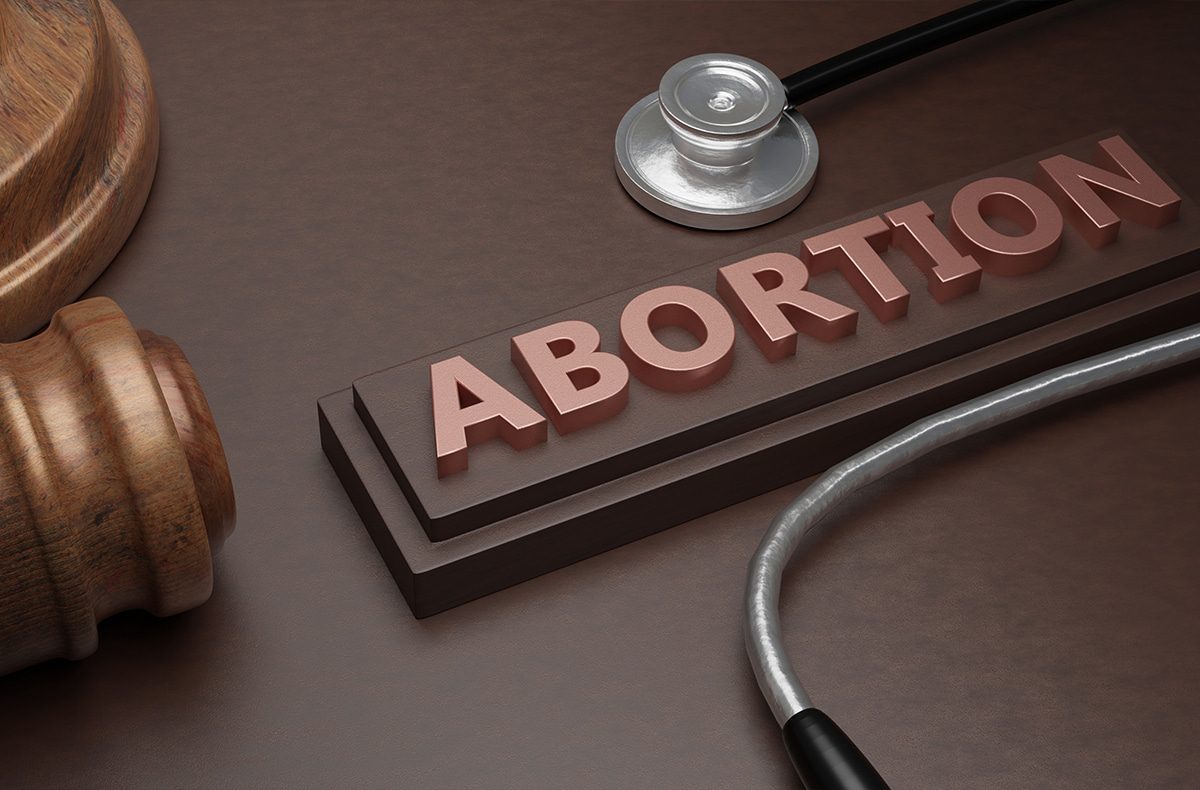
Last June, I wrote up my weekly musing on the overturning of Roe v. Wade, which made it a whole lot more harrowing to have a uterus in America. In the months since, a flurry of continuous political action ensued across the ideological spectrum—in early August, Kansas voters turned out in favor of keeping abortion legal in the state, while just last week, the South Carolina senate approved tighter abortion restrictions, though eschewing an all-out ban. While access to abortion varies state by state, for many, the fallout from the Supreme Court’s action was extreme and immediate, due to the immediate enactment of trigger laws.
I experienced this new reality firsthand, when, as I briefly mentioned in my previous article, we had a friend of the family come stay with us in order to get her medically necessary abortion. I got her permission to share her story anonymously, but never had the chance to do so properly, since after her whirlwind, last minute visit, I came down with my first case of Covid. (Hosting someone in need of an abortion and simultaneously coming down with Covid was pretty on trend for Summer 2022—a dash of monkeypox would have really completed zeitgeist!)
So given that this is a topic only becomes increasingly urgent by the day—which also describes the experience of being pregnant, especially when it’s life-threatening—I thought I would circle back and finally share this one specific example of how and why these abortion bans are so harmful.
First, as many a more seasoned journalist has covered before, the biggest issue with banning abortion is that it’s a health issue. As I, too, previously covered, politicizing something that is intimately connected to a woman’s well being is an incredible violation of one’s individual sovereignty. Controlling when and how a woman may or may not be pregnant should not be a political issue—it should be personal. We’ve already touched on how abhorrent non-consensual sterilization is as part of our country’s dark past—and disturbing present, in some states. The flip side of the coin—forcing a woman to remain pregnant—is equally unacceptable.
And before you start talking about people using abortion as birth control—stop. That’s a strawman fallacy conservatives use to confuse the conversation, and that’s not where I’m going. For now, we’re are just going to stick with one of the least controversial circumstances in which the overwhelming majority of Americans believe abortion should be legal: where the woman’s health and safety are at risk.
The problem with these trigger laws and bans is, while many of them claim to allow abortion in cases where a woman’s life is at risk, we now have the problem of defining when “at risk” is risky enough to be legal. Since these laws were written by politicians and not doctors, they are not correctly established to deal with the nuances of real medical practice. As a result, doctors who are afraid of legal repercussions are now refusing to perform life-saving abortions in states where such bans have been enacted. And that’s leaving scores of pregnant people stranded—much like my previous houseguest.
We’ve heard a lot about ectopic pregnancy, which is a common life-threatening condition (and misnomer, as these cannot result in a viable fetus) where abortion should be legal, but is now in the murky gray area. The same is true of numerous other health conditions that make carrying to term both life-threatening to the mother and non-viable to the potential fetus.
If you know a woman will eventually be threatened by a pregnancy, surely it should be legal to terminate immediately? Common sense says yes, but the law says no. So we have doctors waiting for hemorrhaging, or otherwise allowing women to come to harm before they feel safe to act. It’s like seeing a car hurtling towards someone in the street, but knowing if you push that person out of the way too soon, you’ll get arrested for assault and battery.
Our visitor—whom I’ll refer to as Anna—was one such person whose life was being actively ruined by a pregnancy that never should have happened. To begin with, Anna had been told she was infertile by her doctor—which is a common side effect of obesity, not to mention stress (this was during the pandemic.) She was told this was unlikely to change. In ensuing months, Anna received gastric bypass surgery to encourage weight loss, which reduced her stomach to about the size of a walnut. She had to prioritize protein and take vitamins to ensure that she could still function on her reduced stomach size safely. And she was told it would be deeply unsafe for her to get pregnant in the first two years after the surgery, as her stomach would not be able to absorb enough nutrients to sustain both her life and that of a new, growing embryo.
Her friend helped her find the supplements she needed for her recovery—one of them happened to be a prenatal vitamin. She joked, “If I get pregnant, I’ll kill you!”
Sadly, that joke didn’t stay funny for long. Despite what her doctor had told her, Anna was shocked to discover that she was indeed pregnant, and immediately began seeking an appointment for a termination, as she knew it was dangerous for her to remain so. Unfortunately, Missouri had only one remaining abortion clinic, so she could only get an appointment over a month later—on June 25.
Of course, we live in the future, so we all know that would be the day where Missouri’s trigger laws went into effect. But there was no way Anna would have known that was going to happen, and it seemed to be her only option.
So she waited. And things immediately started to get bad, because essentially she had a parasite growing that was taking all of her nutrients from her tiny walnut-sized stomach. She had debilitating morning sickness and became so dehydrated that she was hospitalized numerous times. Essentially disabled, she was unable to go to her job at an insurance firm and was fired. With no income, she lost her apartment and became homeless. She couldn’t find a new job, as she felt nauseated and dizzy most of the time, and she just urgently needed to get this procedure as soon as possible in order to just be functional again. So when Missouri’s trigger laws essentially took away her already quite late abortion appointment, she was desperate for help.
Getting her to New York and to an appointment was complicated enough—and it didn’t help that, given her lack of income, she had no way to get around, and hadn’t been able to pay her cell phone bill, so she could only call people over WiFi, and couldn’t use Google Maps to navigate the subways. (I live here and can’t imagine finding my way in the city without my phone… let alone if I were a first time visitor with a medical condition.) Luckily Anna had family and friends to help, and we got her to an appointment. And after the stress of figuring out some last minute shuffling to different clinic locations, she was, indeed, able to get the procedure she needed.
The relief she experienced was immediate. Not just psychologically, but physically: all her nausea and dizziness subsided, and she was able to eat and drink water normally. She even went for a few walks in the neighborhood. As much as we’d been concerned about her enduring a surgery and recovery alone, it was actually just the simple act of living pre-abortion that was the hard part. I was able to retreat to my den of Covid quarantine with my also-diseased fiance knowing that she was going to be okay…at least for now.
There were still lingering fears. For instance, there were medical records in Missouri that she had been pregnant, so while her doctors here in NY recommended a two-week check up, she was terrified she might get into legal trouble if she went to her doctor and had her abortion “discovered.” Fortunately, she’d figured out a workaround—since she’s homeless, she could technically say she’s not a resident, and put her friend’s Kansas address as her own (and planned to get her check up in that state instead.) At least as of August, that’s still an acceptable state for her to get the care she needs as a woman.
This is one story of one young woman with a whole lot of help. There are countless other stories unfolding right now of other people who are not so lucky, who don’t have friends in abortion states with legal access to abortion, who don’t have the time or resources to solve a problem that, in a “free country” should not exist.
It’s perfectly comfortable for those unaffected to sit on their high horse and disdain abortion as a morally superior thought exercise. But enacting restrictive policies in our complicated reality is ruinous to real-life individuals. As midterm elections approach, let’s hope the majority of Americans show up to the polls with that in mind.


